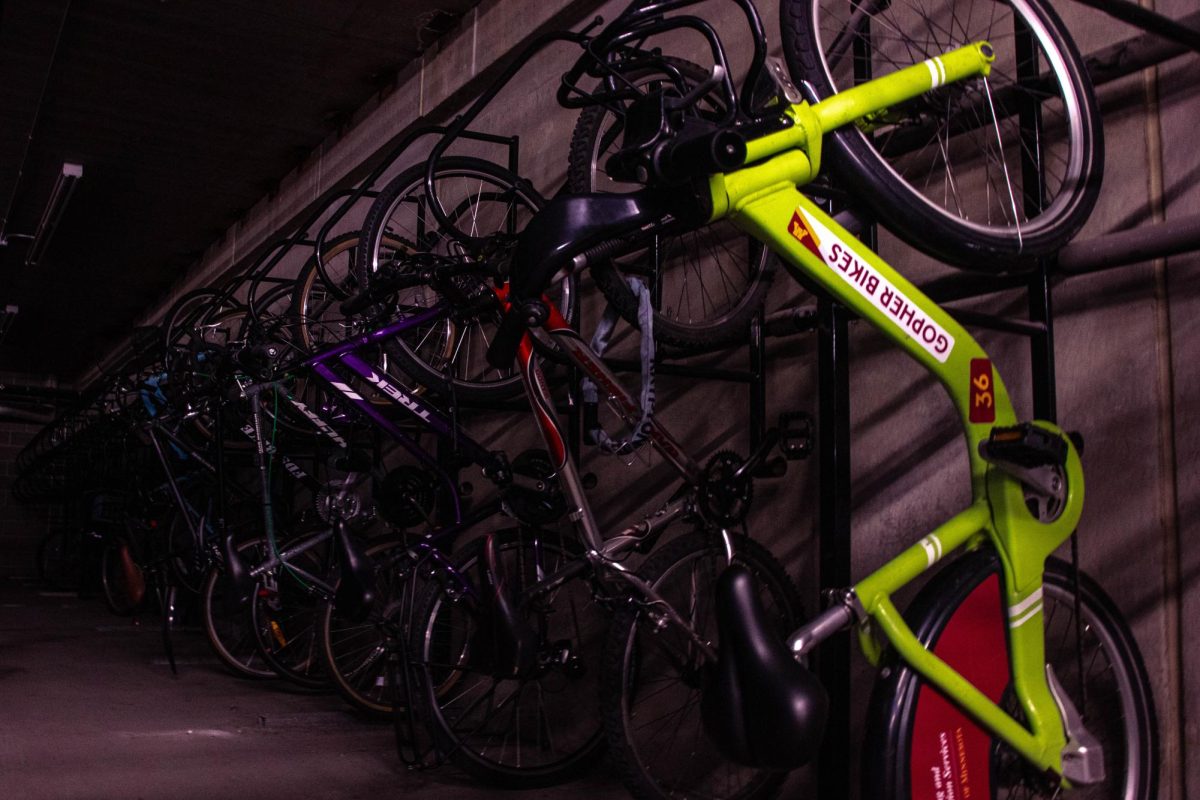Last November, my third month as a college freshman, my bicycle was stolen.
I made the mistake of assuming that a cheap wire bike lock and the presumed security of using a bike rack directly outside my dorm was enough to keep my belongings safe. I was wrong, and I paid the price. For the next several months, my methods of transportation were restricted to public transit and my own two feet.
Initially, I thought I would be fine and decided to wait until the summer months to replace my bicycle. However, I ended up scarcely lasting a month into the spring semester before changing my mind and making hasty plans to get a new bike. During my brief period without one, I renewed my value for bicycles as the most convenient, affordable and sustainable method of transportation.
Brian Dowdy is a worker-owner of The Hub Bicycle Co-op, a cooperative bike shop based in Minneapolis that sells and repairs bikes for the community while also educating consumers and promoting bicycles as an ideal method of transportation.
According to Dowdy, biking is one of the most convenient and fun ways to get from one place to another, especially for students.
“When I was in school and riding my bike everywhere on the weekends, I would head out at night with friends on my bike,” Dowdy said. “I think it’s critical for folks to be able to get to class and work and not have to own, maintain and pay for gas with a car.”
Bicycles are also typically the fastest way to get around a college campus. The slowness of walking, the unpredictability of public transit and the hassle of parking a car means my bicycle is always the quickest and most logical way to get to class.
Zephyr Sheedy is an avid cyclist and employee at The Hub, working at their University of Minnesota location.
“As a young adult, I liked being able to ride my bike around and not think about other methods of transportation,” Sheedy said. “It’s nice to be able to lock up somewhere, walk inside and not have to worry about parking,”
Riding a bicycle also offers opportunities to build community and meet new people through races, events or challenge programs.
According to Dowdy, the ZAP Bike Commuting Program is one initiative offered at the University in coordination with The Hub. Participants’ biking data is recorded via tags attached to each bicycle by electronic readers scattered throughout Minneapolis.
“When you participate in the program, you get periodic rewards,” Dowdy said. “You bring your student ID in, and then you get a gift card to a local restaurant or something like that.”
Minneapolis has an extensive network of paths and bike lanes connecting campus to many shopping centers and scenic parks.
Marcy Levine, an employee at Freewheel Bike, a Twin Cities bike shop with several locations, including one in Cedar-Riverside near West Bank, said the Twin Cities are frequently ranked in the top three or five most bicycle-friendly cities in the country.
“Hennepin County, and Minneapolis in particular, have very well-developed bike lanes, both separate from the street and straight on the street,” Levine said. “They’re well mapped out. They’re well marked, and the Hennepin County Transportation Board has done a good job of what they refer to as a ‘gap study,’ where they looked at existing bicycle lanes and places where the lanes could be made more useful if you connected one path to another.”
Riding a bicycle rather than driving a car also improves your health and the environment, according to Dowdy. Biking is a good source of physical activity and serves as a viable method of transportation that does not burn fossil fuels and contribute to climate change.
“The more you ride, the healthier you are and therefore the more you’re likely to ride, walk and get outside,” Dowdy said. “All things that don’t involve fossil fuel.”
The cost of entry to biking can be very low, depending on one’s preferences. I purchased my current used bicycle for just $25, which many passionate cyclists would scoff at, but it has proven to be just as reliable as any other bike.
The University has several programs to help students get bicycles at little to no cost, such as the Gopher Bikes Program, which currently allows students to rent a bicycle for an entire semester at no cost.
According to Levine, the University Reuse Program also offers an annual used bicycle sale every spring in which abandoned bicycles found across campus are repaired by student mechanics and sold at affordable prices.
Unlike cars, bicycles do not come with the assumption of constant gas bills, expanding their affordability. Maintenance for bicycles is also far less expensive and easier to learn, Dowdy added.
“It feels good to have a reliable form of transportation that I know how to work on, fix and modify,” Sheedy said.
Regardless of which type of bicycle you ride — new or used, owned or loaned, cheap or expensive — all carry the underlying benefits.
“Our motto is, ‘All types of bikes for all types of people,’” Dowdy said. “If you love it, if it works, if it’s well maintained, it’s pretty good.”
Learn from my mistakes, and get a bike lock strong enough to withstand wire cutters.















A. Mark
Jun 19, 2024 at 11:02 am
We’ll,said! There’s a special place to Bike Thieves, especially the one that just joy ride and dump them!!!